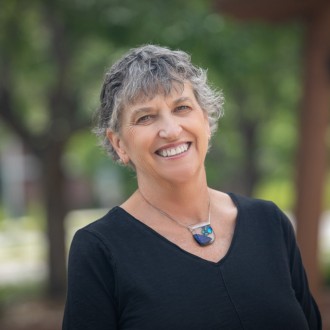Dr. Whitesell is a developmental psychologist who works in partnership with Indigenous (American Indian and Alaska Native) communities to engage in research that informs interventions to improve developmental outcomes for children birth through adolescence. This collaborative work includes developing and testing interventions to prevent early substance use, studying implementation of early childhood interventions, creating measures for use in research and practice with Indigenous children and families, and training the next generation of Indigenous prevention scientists. She utilizes Community-Based Participatory Research (CBPR) approaches that engage Indigenous community partners in all aspects of research, from identification of study goals through interpretation of data and dissemination of findings to help ensure research addresses questions of importance to communities, uses methods that are both culturally and scientifically rigorous, generates meaningful data, constructs accurate interpretations, and fosters leadership by Indigenous researchers. Her expertise in advanced statistical techniques supports the application of rigorous research methods to questions identified with community partners. She uses latent variable statistical methods (e.g., factor analysis, latent class models), structural equation modeling and longitudinal modeling (e.g., latent growth curve modeling) to support understanding of developmental processes that in turn inform intervention efforts.
Areas of Expertise
- Child and adolescent development within American Indian and Alaska Native cultural contexts
- Culturally appropriate measurement of child and adolescent outcomes
- Cultural and contextual influences on child and adolescent development
- Promotion of successful early development
- Prevention of early substance use
- Implementation of evidence-based programs within American Indian and Alaska Native communities
Education, Licensure & Certifications
- University of Denver, PhD, Developmental Psychology, 1989
- University of Denver, MA, Developmental Psychology, 1987
- Baylor University, BA, Psychology, 1981
Resumes/CV:
Awards
- Platinum Award, Hermes Creative Awards, 2015
- Faculty Excellence in Student-Mentored Research, Colorado School of Public Health, 2018
- MERIT Award, National Institute on Drug Abuse (R37DA047926), 2019
- Excellence in Research, Community and Behavioral Health, Colorado School of Public Health, 2021
Research
- Evaluation of an optimized intervention to prevent early substance use among American Indian youth: Examination of expanded impacts on youth and parents National Institutes of Health, National Institute on Drug Abuse (R37DA047926; Whitesell, PI; 2019-2024). A randomized controlled trial of the Thiwáhe Gluwáš'akapi program, a family-based substance use prevention program for young adolescents developed as part of a previous grant (R01DA035111).
- Center for Indigenous Research Collaboration and Learning for Home Visiting (CIRCLE-HV) Administration for Children and Families, Office of Planning, Research and Evaluation (HHSP233201500133I Task order 75N98022F00280; Whitesell, PI; 2022-2027). CIRCLE-HV supports two types of research-practice collaborations to build evidence and understanding about home visiting and well-being in Indigenous communities: (1) awards for Research-Practice Partnerships that will pursue innovative research and evaluation of home visiting programs that serve Indigenous children and families, and (2) cross-site research and evaluation in partnership with home visiting programs that serve Indigenous children and families.
- Multi-Site Implementation Evaluation of MIECHV Home Visiting with AIAN Families (MUSE) Administration for Children and Families, Office of Planning, Research and Evaluation (47QRAA20D0008; Whitesell, PI; 2021-2026). A continuation of the original MUSE study (HHSP2337004T) to complete a multi-site evaluation of implementation quality and program outcomes in American Indian and Alaska Native Maternal, Infant and Early Childhood Home Visiting (Tribal MIECHV) programs, disseminate findings, study the impact of the COVID-19 pandemic on Tribal MIECHV programs, and conduct a companion study home visiting programs funded through State-MIECHV to serve AIAN families.
- The Native Children's Research Exchange Scholars Program: Preparing the Next Generation of American Indian and Alaska Native Substance Abuse and Addiction Scientists National Institutes of Health, National Institute on Drug Abuse (R25DA050645; Whitesell, PI; 2019-2024). This project supports the development of the next generation of American Indian, Alaska Native and Native Hawaiian substance abuse and addiction scientists, sustaining a program that has mentored 35 early career Native researchers since 2012. The program provides intensive mentoring to small cohorts of Scholars in connection to the Native Children’s Research Exchange (NCRE) network through the creation and implementation of Tailored Career Development Plans, support of publishing and grant writing efforts, courses in grant writing and responsible conduct of research with Indigenous communities.
- Tribal Early Childhood Research Center Administration for Children and Families, Office of Planning, Research and Evaluation (90PH0027; Sarche, PI; 2016-2020; Role: Co-Investigator). This project continues and extends the work of the Tribal Early Childhood Research Center, formed in 2011 with earlier funding from ACF, to consult with early childhood programs in American Indian and Alaska Native communities, build Communities of Learning to conduct research and measure development, train the next generation of researchers to work effectively with early childhood programs in AIAN communities, provide forums for tribal voices in research and disseminate this work broadly.
Publications and Presentations
- Whitesell, N.R., Mousseau, A.C., Keane, E.M., Asdigian, N.L., Tuitt, N., Morse, B., Zacher, T, Dick, R., Mitchell, C.M. and Kaufman, C.E. (2019). Integrating community engagement and a multiphase optimization framework: Adapting substance use prevention for American Indian families. Prevention Science, 20(7), 1136-1146. DOI: 10.1007/s11121-019-01036-y
- Boland, S., Ivanich, J., Wesner, C., Tuitt, N., Zacher, T., Asdigian, N., Whitesell, N. (2021). Crisis-Resilient and Anti-Racist Approaches to Community Based Participatory Research During COVID-19 and Beyond. Health Education & Behavior, 49(1), 11-16. DOI: 10.1177/10901981211054791
- Ivanich, J.D., Sarche, M., White, E., Marshall, S.M., Russette, H., Ullrich, J., and Whitesell, N.R. (2022). Increasing Native Research Leadership through an Early Career Development. Frontiers in Public Health, (10), February 24, 2022. DOI: 10.3389/fpubh.2022.770498
- Whitesell, N.R., Howley, C.T., Asdigian, N.L., Clifford, C., Senehi, N., & Sarche, M. (2022). Community Perspectives on Developmental Screening of American Indian and Alaska Native Children. Infant Mental Health Journal, 43, 558-575. DOI: 10.1002/imhj.21992
- Tuitt, N., Asdigian, N. L., Mousseau, A., Ivanich, J., Zacher, T., Skinner, L., Red Willow Richards, F., Bear Robe, L., Keane, E., Boland, S., & Whitesell, N.R. (2022). Measure of Socialization of American Indian Children (MOSAIC): Understanding the Roots of Ethnic–Racial Identity. Cultural Diversity and Ethnic Minority Psychology. Advance online publication. http://dx.doi.org/10.1037/cdp0000559



